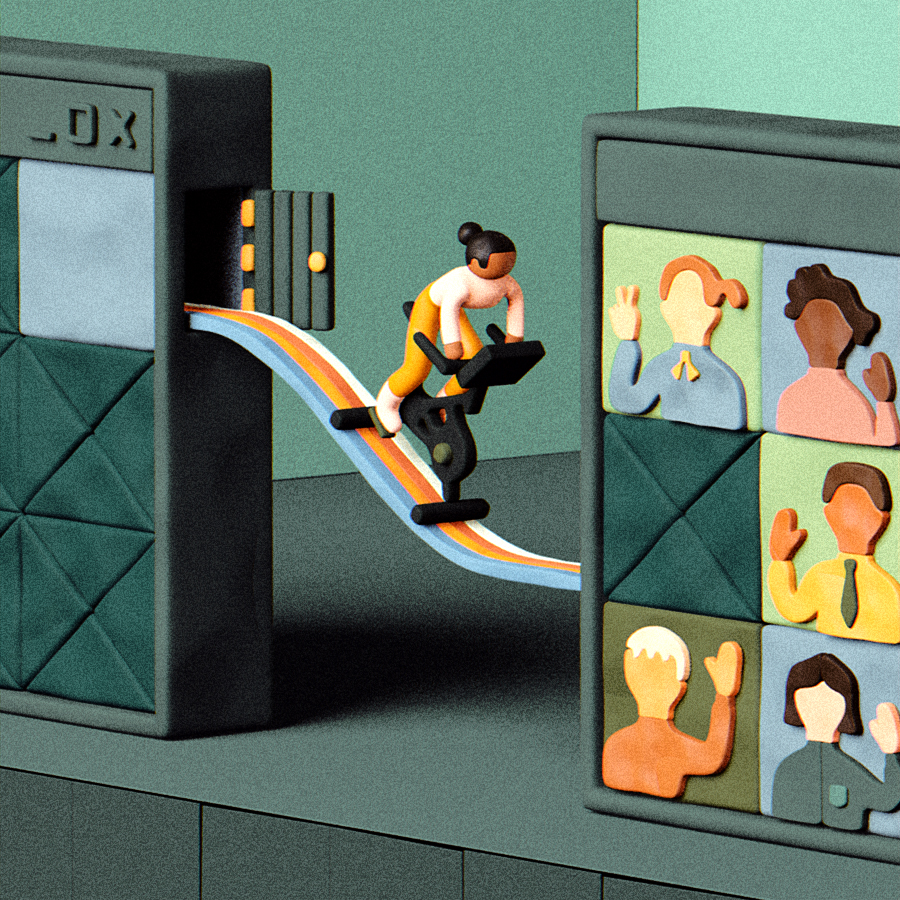In the waning days of 2021, the pop-culture world watched in shock as a well-known television character died after a particularly strenuous workout. Mr. Big, Carrie Bradshaw’s husband on the eagerly anticipated Sex and the City reboot series, had a heart attack moments after finishing his 1,000th ride on his beloved Peloton bike. Suddenly, the internet was aflame with interviews with cardiologists and outrage that Carrie didn’t call 911. Peloton produced a clever response ad that soon went viral (though it was subsequently yanked when the actor who plays Mr. Big faced multiple allegations of sexual assault, which he went on to deny). Investors seemed to worry that the media attention would permanently damage the company’s brand: the day after the episode landed, Peloton’s share price fell by 11 percent.
To all the lawyers who were obsessed with this extremely trendy piece of exercise equipment, however, Peloton’s unfortunate moment in the news cycle wasn’t about to dampen their enthusiasm. For anyone unfamiliar with the Peloton bike, it looks like a typical stationary bike, but it has a touchscreen monitor that connects to live or on-demand spin classes taught by a bevy of ridiculously good-looking instructors from the company’s studio in New York City. During the live classes, a leaderboard shows the rider with the greatest energy output atop all the losers playing catch-up from below. The cheapest model will cost you $1,895, plus $49 a month to access the app, which also includes non-cycling fitness classes like weight training and yoga.
But Peloton is more than a bike. It’s also a social-media platform. On the app, you can add friends and colleagues and keep track of each other’s workouts like a bunch of angry cheerleaders in spandex. A quick search through the app’s user database reveals a mass of lawyers. More than 13,700 members have proudly included the #PelotonLawyers tag in their profiles, while another 7,700 have identified themselves as #PeloLawMoms. On Facebook, meanwhile, there’s also a Peloton Law Moms group with 5,200 members.

“I feel like I’m a member of a cult,” laughs Chris Horkins, a partner in the litigation group at Cassels Brock & Blackwell LLP. He and his wife (also a lawyer at Cassels) bought a Peloton in April 2021, shortly after the birth of their first child. With a baby at home and the pandemic alive and well, the couple no longer felt comfortable going to the boot-camp classes they used to attend several times a week. (Even if they had been comfortable, the latest batch of restrictions had forced the classes to close.) In hardly any time at all, Horkins was hooked on the bike. And he soon discovered that many of his colleagues and lawyer-friends suffered from the same obsession.
Why are lawyers so devoted to their Pelotons? The first answer to this painful — but necessary — question is the spirit of friendly competition that’s baked into the company’s technology. “You can track how other people are doing and compare your stats,” says Horkins. Among hyper-competitive lawyers, this can whip up real-world motivation. “I mostly just like seeing the other lawyers at Cassels or my brother. I’ll give them a hard time if they haven’t been on in a while.”
Rebecca Shoom, a partner at Lerners LLP, got her bike in August 2020. At the time, her condo’s gym was still off-limits thanks to COVID, so she couldn’t meet her personal trainer there to work out each week. She had never taken spin classes, but she knew she needed structure to stay active. Her Peloton currently resides in her home office, where it taunts her all day long. There’s an unexpected advantage, however, to placing the bike so close to her desk. “If I need to get amped up for a contentious discussion with opposing counsel,” she says, “I can do a high-energy class first.”
Back in February 2020, Sabrina Bruno, corporate legal counsel at the children’s entertainment company WildBrain, bought a Peloton to get in shape for her upcoming wedding. (It was supposed to be on a Jamaican beach, but the pandemic has forced the postponement of her nuptials about, in her words, “a million times.”) Today, she proudly rides the bike several times a week, paying close attention to her stats. One source of frustration is that she also plays softball, ball hockey and ice hockey, and there’s no way to add those workouts to her Peloton profile. When she plays a three-hour hockey game, her connections think she took the day off. “My friends just look at my profile and they’re like, ‘She was really lazy today,’” says Bruno. “But it was totally the opposite!”
Another core reason that lawyers love Peloton is how well its classes fit into their busy work schedules. Almost two years into the pandemic, most lawyers are still logging long hours, mostly at home, and finding it harder than ever to carve out time for exercise. “Being a lawyer is obviously hectic,” says Shoom. “But one of the weird perks is that your schedule is flexible, too. Any time I have 15 minutes between meetings or a half-hour at the end of the day, I just hop on the bike.”
Horkins, too, loves the flexibility. “If you’ve got a busy practice and a family, finding the time to go have a workout can be difficult — and I was never a big fitness guy to begin with,” he says. “I like being able to say, ‘Okay, I’ve got 20 minutes. I’m going to do a 20-minute class right now.’”
Bruno’s workload doesn’t leave her a lot of free time, but having a Peloton helps her maintain some semblance of a regime. “If it’s in your house, it’s hard to make excuses not to work out,” she says. “It’s right in front of you.”


